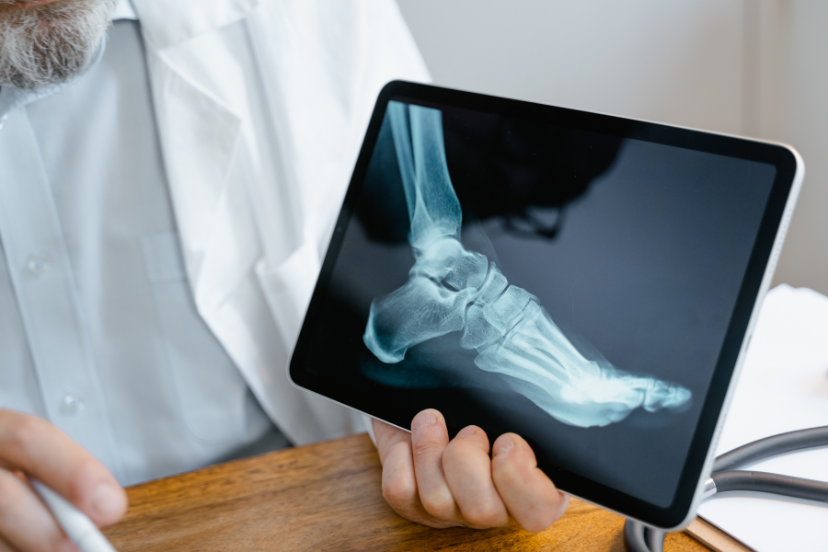Hormonal Bone Loss: Understanding the Impact on Your Health
Introduction: Unveiling the Silent Threat
Picture this: You’re cruising through life, feeling invincible, until one day, a simple misstep leads to a fracture. Suddenly, you’re faced with the harsh reality of weakened bones. But why? Well, one culprit often lurking in the shadows is hormonal bone loss. In this comprehensive guide, we’ll delve deep into the world of bone health, exploring the intricate relationship between hormones and bone density.
What is Hormonal Bone Loss?
So, what exactly is hormonal bone loss? Essentially, it refers to the gradual weakening of bones due to hormonal imbalances. Hormones play a crucial role in maintaining bone density, and any disruption can spell trouble for your skeletal strength.
The Hormonal Tango: How Hormones Influence Bone Health
Let’s break it down: Hormones like estrogen and testosterone act as the guardians of bone density. They stimulate bone formation while inhibiting bone breakdown, keeping your skeleton sturdy and resilient. However, when hormone levels fluctuate—whether due to aging, medical conditions, or lifestyle factors—the delicate balance is disrupted, paving the way for hormonal bone loss.
Detecting the Silent Thief: Signs and Symptoms
Detecting this condition isn’t always straightforward. Unlike a sudden injury, it creeps up silently, often without warning signs. However, some red flags may include:
- Recurrent fractures, especially from minor trauma
- Loss of height over time
- Stooped posture or curvature of the spine (kyphosis)
If you notice any of these symptoms, it’s crucial to consult a healthcare professional for evaluation and management.
Hormonal Havoc: Understanding the Underlying Causes
Now, you might be wondering: What triggers hormonal bone loss? Well, the causes can be multifaceted, ranging from natural aging processes to medical conditions and lifestyle factors. Here’s a closer look:
1. Aging Gracefully or Not So Much?
As we age, our hormone levels naturally decline, particularly in women during menopause and in men as they enter andropause. This hormonal shift can accelerate bone loss, making older adults more vulnerable to fractures and osteoporosis.
2. The Menopause Factor: Navigating Hormonal Changes
Menopause isn’t just about hot flashes and mood swings—it also wreaks havoc on bone health. With estrogen levels plummeting, women are at increased risk of the condition and osteoporosis. Hormone replacement therapy (HRT) may offer some protection, but it’s not without risks.
3. Medical Mavericks: Conditions That Disrupt Hormonal Harmony
Certain medical conditions can throw a wrench into the delicate balance of hormones, leading to accelerated bone loss. Examples include hyperparathyroidism, Cushing’s syndrome, and thyroid disorders. Managing the underlying condition is crucial for preserving bone health.
4. Lifestyle Lurkers: Habits That Sabotage Bone Strength
Your lifestyle choices can either bolster or undermine your bone health. Smoking, excessive alcohol consumption, sedentary behavior, and a poor diet devoid of essential nutrients can accelerate the condition. Making healthy lifestyle changes is key to safeguarding your skeletal fortress.
FAQs About Hormonal Bone Loss
1. What role do hormones play in bone health?
Hormones like estrogen and testosterone regulate bone formation and resorption, maintaining optimal bone density.
2. How does menopause affect bone health?
During menopause, estrogen levels decline, increasing the risk of the condition and osteoporosis in women.
3. Can hormonal imbalances in men cause bone loss?
Yes, hormonal imbalances in men, such as those seen in andropause or due to medical conditions, can lead to this condition and weakened bones.
4. Is hormonal bone loss reversible?
While condition can be managed and slowed down, reversing it entirely may be challenging. Prevention through lifestyle modifications and appropriate medical interventions is key.
5. What are the treatment options for hormonal bone loss?
Treatment options may include hormone replacement therapy (HRT), medications to slow bone loss, lifestyle modifications, and dietary supplements.
6. How can I prevent hormonal bone loss?
Maintaining a healthy lifestyle, including regular exercise, a balanced diet rich in calcium and vitamin D, avoiding smoking and excessive alcohol, and managing any underlying medical conditions, can help prevent this condition.
Conclusion: Empowering Yourself With Knowledge
In the battle against hormonal bone loss, knowledge is your most potent weapon. By understanding the intricate interplay between hormones and bone health, you can take proactive steps to safeguard your skeletal fortress. Remember, it’s never too early—or too late—to prioritize bone health. So, arm yourself with information, adopt healthy habits, and stride confidently towards a future of strong, resilient bones.




